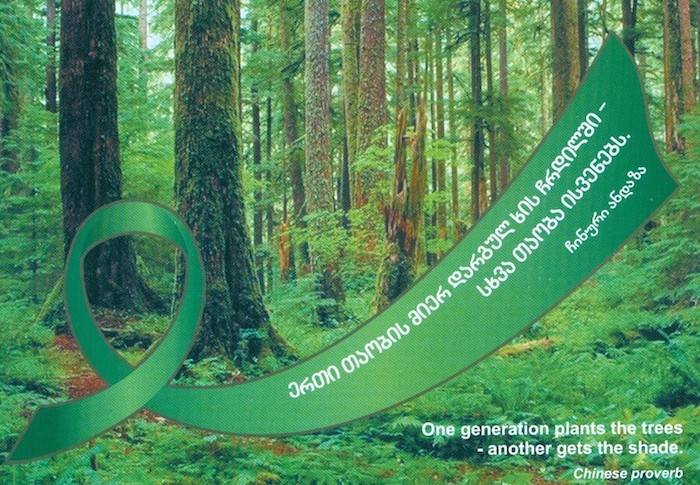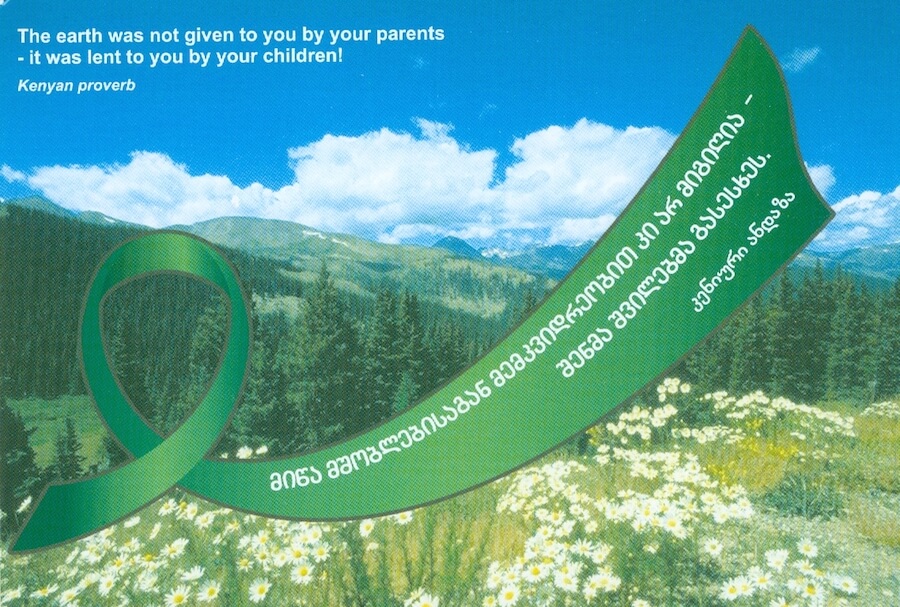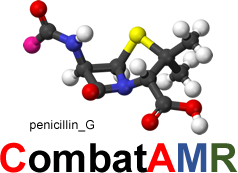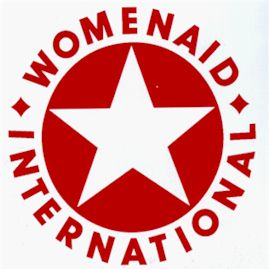Effective policy-making presupposes the existence of decision-makers responsive to the views of a public well-informed about environment and development issues and their complex inter-relationships. By developing broad multi-sectoral discussion between government and local authorities officials, NGOs, scientists, community groups, trade unions, business leaders, and members of the general public, WomenAid promotes a method of consensus-building, an important part of democratic decision-making processes. The aim is to engage a cross-section of civil society in debates on environmental and health risks and lobby national government and local authorities for action.
The maintenance and improvement of health should be at the centre of concern about development and the environment. Many successes have been recorded in recent decades by the World Health Organisation (WHO) but the health situation of whole populations in many regions of the world remains at an unacceptable level. The consequences are being borne by the poorest of the poor - women and children in deprived communities.
Mothers of the Earth

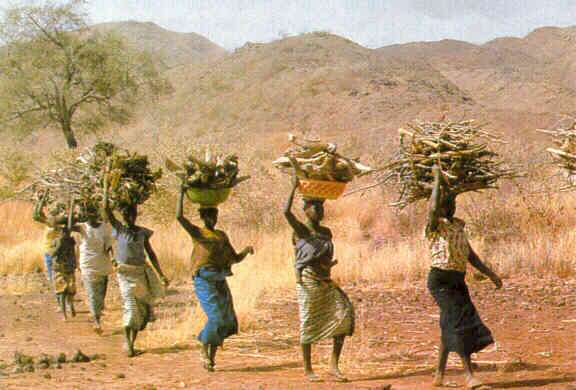
WomenAid International (WAI) has a long history of environmental health action and awareness campaigning.
WomenAid, through its Mothers of the Earth environmental awareness campaign promoted increased awareness of the centrality of women as environmental resource managers and urged for greater recognition be awarded to the environmental work of women.
“It is so important to have groups like yours helping raise awareness of the need for integration of
trees in the environment and of women’s current and potential role in resource management.”
C.H. Murray, Assistant Director-General, Forestry Department,
UN Food & Agricultural Organization
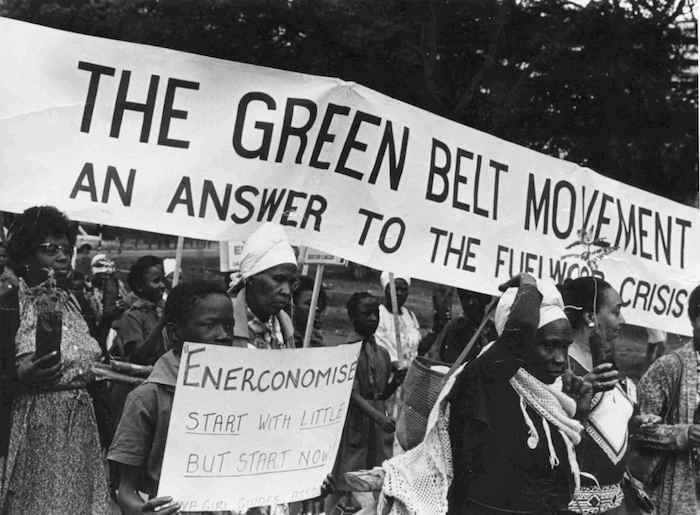
An early partner with Wangari Maathai and the Green Belt Movement, Kenya, WomenAid channelled substantial funding in support of the programme. The Green Belt Movement, which later received further global recognition, reduces the effects of deforestation and provides a forum for women to be creative and effective leaders.
WomenAid International’s campaign promoting women as resource managers included support for the Green Belt Movement and the partnership received recognition in the 1987 UNEP 500 Global Awards.
http://www.global500.org/index.php/thelaureates/prominent-laureates http://www.global500.org/index.php/thelaureates/online-directory/item/71.... .
Caucausus Environment & Health Centre
WomenAid established an Environment & Health Centre in the Caucasus to increase public participation in environmental decision-making by promoting greater awareness of environmental threats and encouraging the public to contribute actively towards protecting the environment. By increasing public awareness of environmental issues and health linkages and facilitating exchange of health and environmental protection, policy and research in the Caucasus region, more enlightened attitudes are fostered.
The WomenAid Environment & Health Network Platform, (EHNP) was established as a mechanism to increase public participation in environmental decision-making, promote public awareness of environmental issues and encourage the public to contribute actively towards a better environment. The EHNP platform creates 'network capital' by gathering a broad coalition of key players and stakeholders who work together to develop strategies that increase public awareness of environmental issues and health linkages, thereby fostering more enlightened attitudes and encouraging the public to contribute actively towards a better environment. Platform members define effective response strategies to environmental threats and stimulate informed pressure for effective and early implementation of policies based on sustainable development.
The work and activities of the UN agencies were supported and close partnerships were developed with the Ministries of Health and Environment.
Caucasus Zone Green - CZG
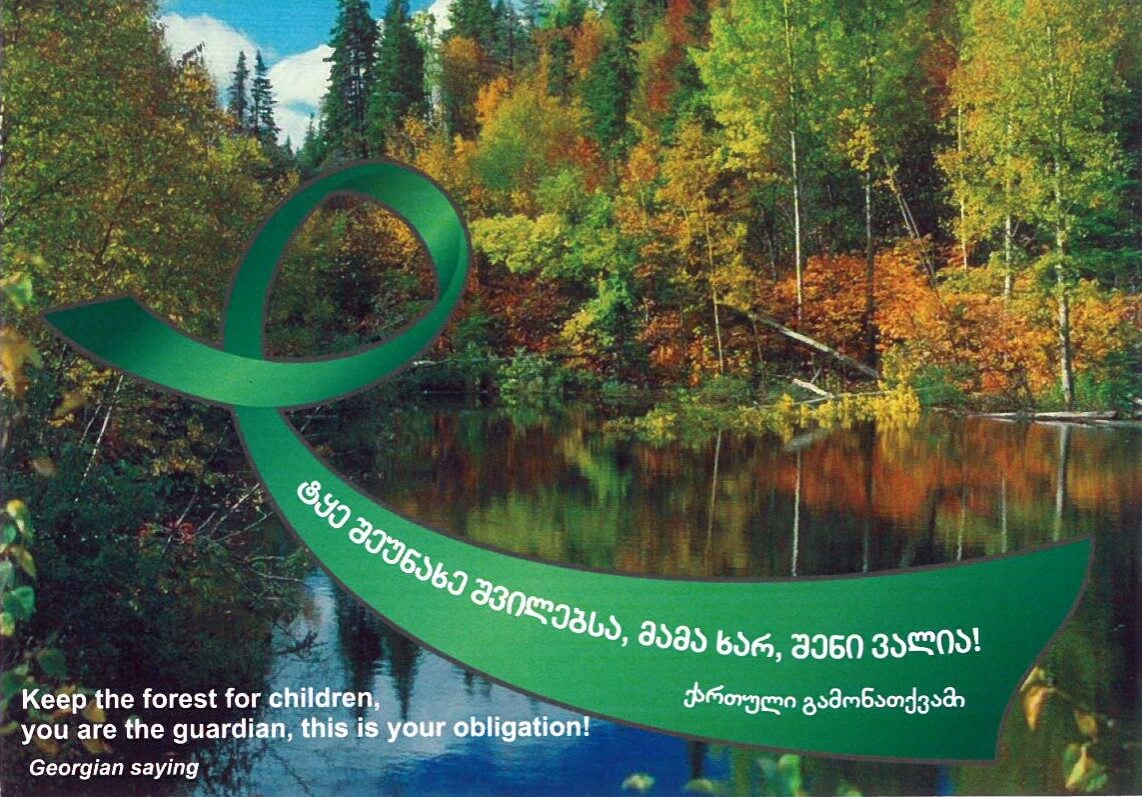
A core aim of WomenAid International is to act as a catalyst for policy and legislative change.
To introduce greater environmental awareness, engage civil society and ‘seed’ voluntary community action in Georgia, Armenia and Azerbaijan, WomenAid launched Caucasus Zone Green (CZG) a 5-year campaign as a mechanism for securing action at all levels. Conceived by Pida Ripley and launched in 2001, the CZG took place every year throughout the month of June facilitating information exchange and collaboration between all sectors of civil society, promoting stakeholder and environmental stewardship values, increasing public awareness and knowledge of environmental issues and risks and disseminating information.
It was the first such people’s ‘Call to Action’ in the Caucasus region, promoting activities such as tree planting, green days, recycling and clean-up campaigns, street rallies, bicycle parades, green concerts, poetry, essay and poster competitions in schools as well as seminars, round table meetings and symposia. Creating many promotional initiatives including an annual radio lecture, phone-in programmes, newsletters, green ribbon promotions - pioneered the early interest in environmental action in the region and provided the foundation for the ongoing civil society and goverment development. The campaign provided an opportunity for organisations and individuals to express their concerns and showcase their activities.
By establishing an inter-regional Environment and Health Network Platform (EHNP) of government departments, UN agencies, INGOs & non-governmental organisations, together with multimedia partners, over 450 engaged parties in Armenia, Azerbaijan and Georgia promoted environmental issues and organised hundreds of media supported events at all levels, regional, national and inter-regional.
Partners: WAI, UNEP, WAI-Caucasus, media, relevant government ministries and UN country offices.
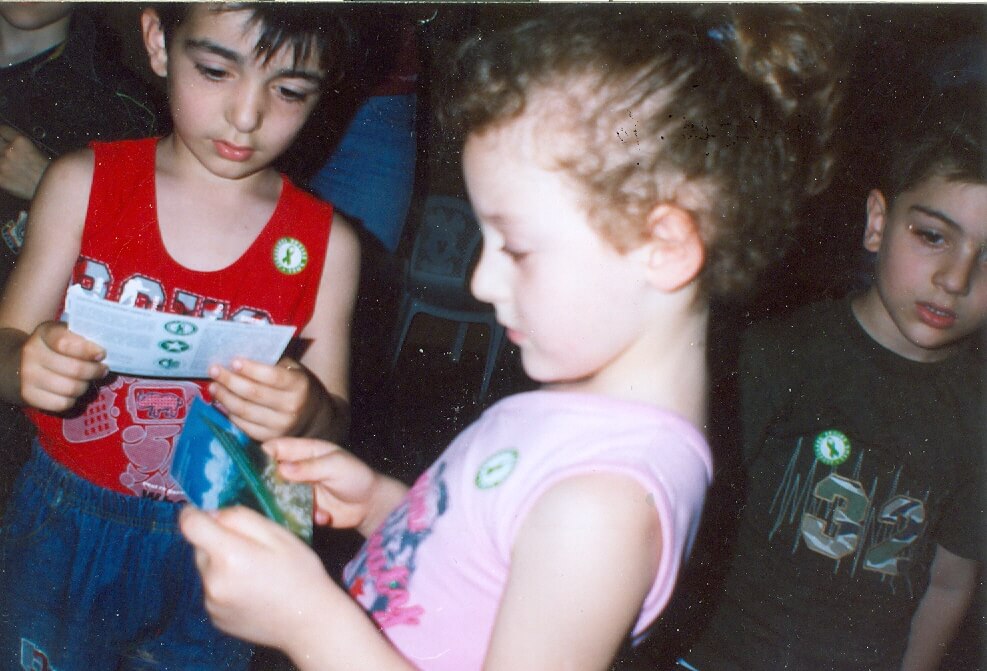
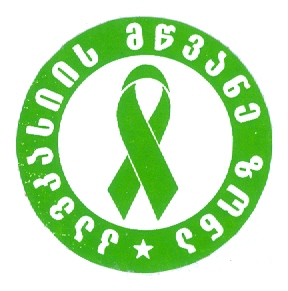

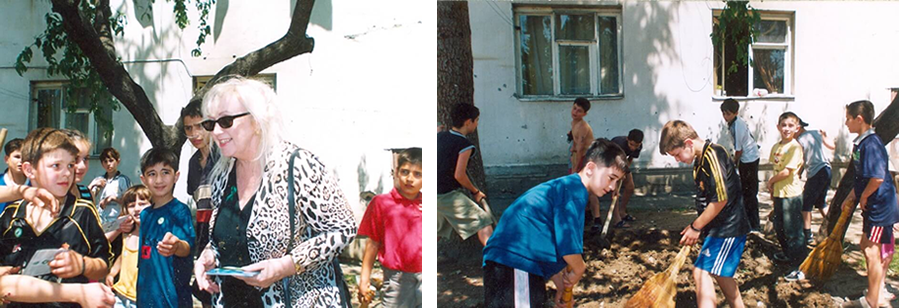
CAUCASUS ZONE GREEN - CZG Campaign
In 2004 this high profile 5-year educational and community initiative was noted and further promoted by the Aarhus Convention.
“Dear Mrs Ripley, I am pleased to inform you that the Aarhus Clearinghouse for Environmental Democracy is featuring the Green Belt Movement and the WomenAid International EHNP on the home page this month.
The (WomenAid) Environment & Health Network Platform (EHNP) works to promote public awareness of environmental issues, increase public participation in environmental decision-making and strengthen the capacity of civil society organisations to advocate for and implement such programmes.”
Aarhus Convention Secretariat, UN Economic Commission of Europe, Geneva. 08.10.2004

Georgian National Environmental Health Action Plan (NEHAP).
Within the Caucasus Zone Green framework Pida Ripley personally sponsored and facilitated the development of the Georgian National Environmental Health Action Plan (NEHAP) - a manual for Georgian policy makers, environmental health professionals and other specialists, by creating specialist expert platforms and coordinated the series of planning round tables.
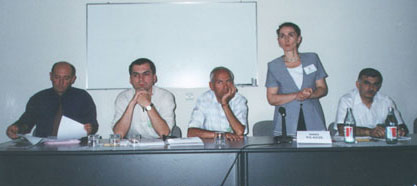
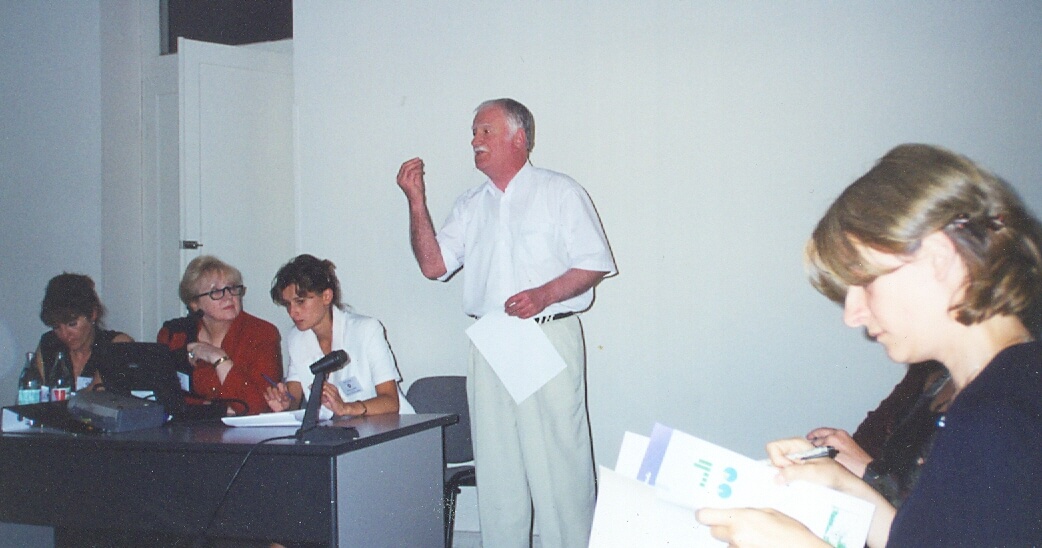
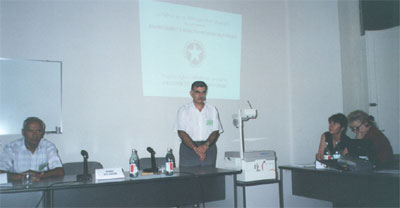
Scientists presenting at the specialist NEHAP platforms
A series of public consultations on specific environmental issue areas were also organized to assist feedback to the National Environmental Health Action Plan Task Group prior to submission of the NEHAP to the Georgian parliament for approval. The NEHAP team included Dr Mikheil Kurkhuli, Dr Givi Katsitadze, Dr Revaz Kverenchkhiladze, Dr Revaz Rcheulishvili, Dr Karman Pagava and WomenAid staff.
Dr Misha Kurkhuli , Head of NEHAP Working Group, thanked WomenAid International for its support and for organizing the NEHAP Forum, its consultations and presentation that ensured wide public awareness about the issue.
Well-informed citizens who are actively involved in environmental
decision-making are a powerful new force in achieving results.
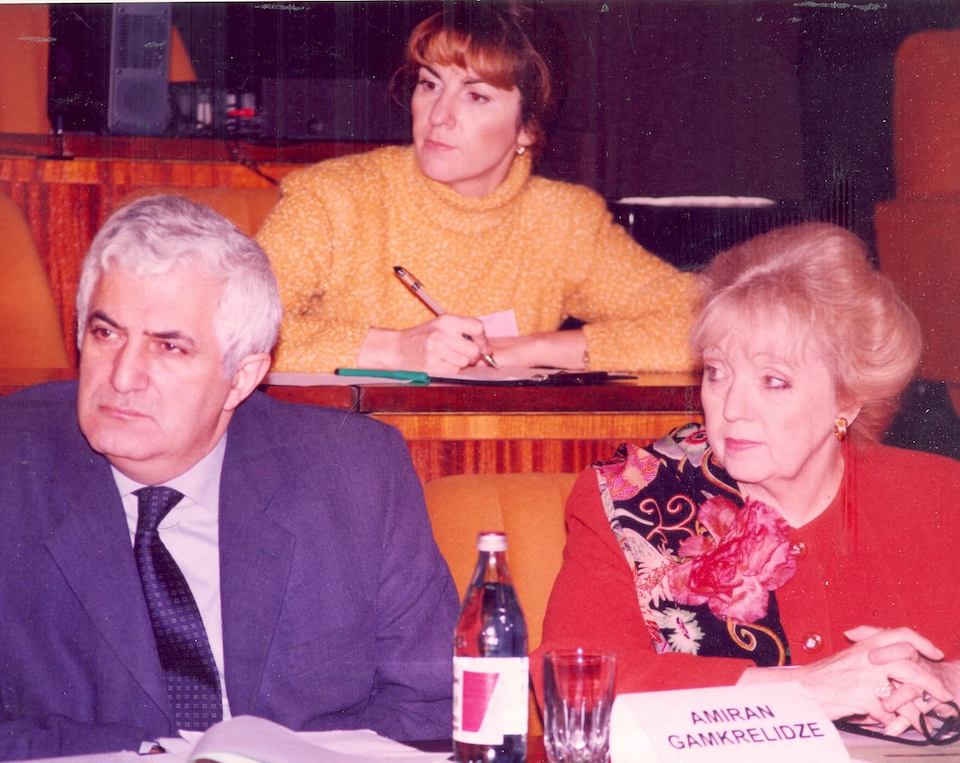
with Dr. Amiran Gamkrelidze, Minister of Labour,
Health & Social Affairs of Georgia
The resulting draft NEHAP was subsequently adopted by the
Georgian Parliament and on 24 March 2003,
the President of Georgia signed Decree N326 approving the NEHAP for Georgia.
Once again WomenAid fulfilled its core mission to be a
catalyst for policy and legislative change.
